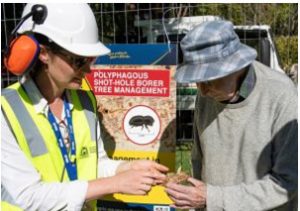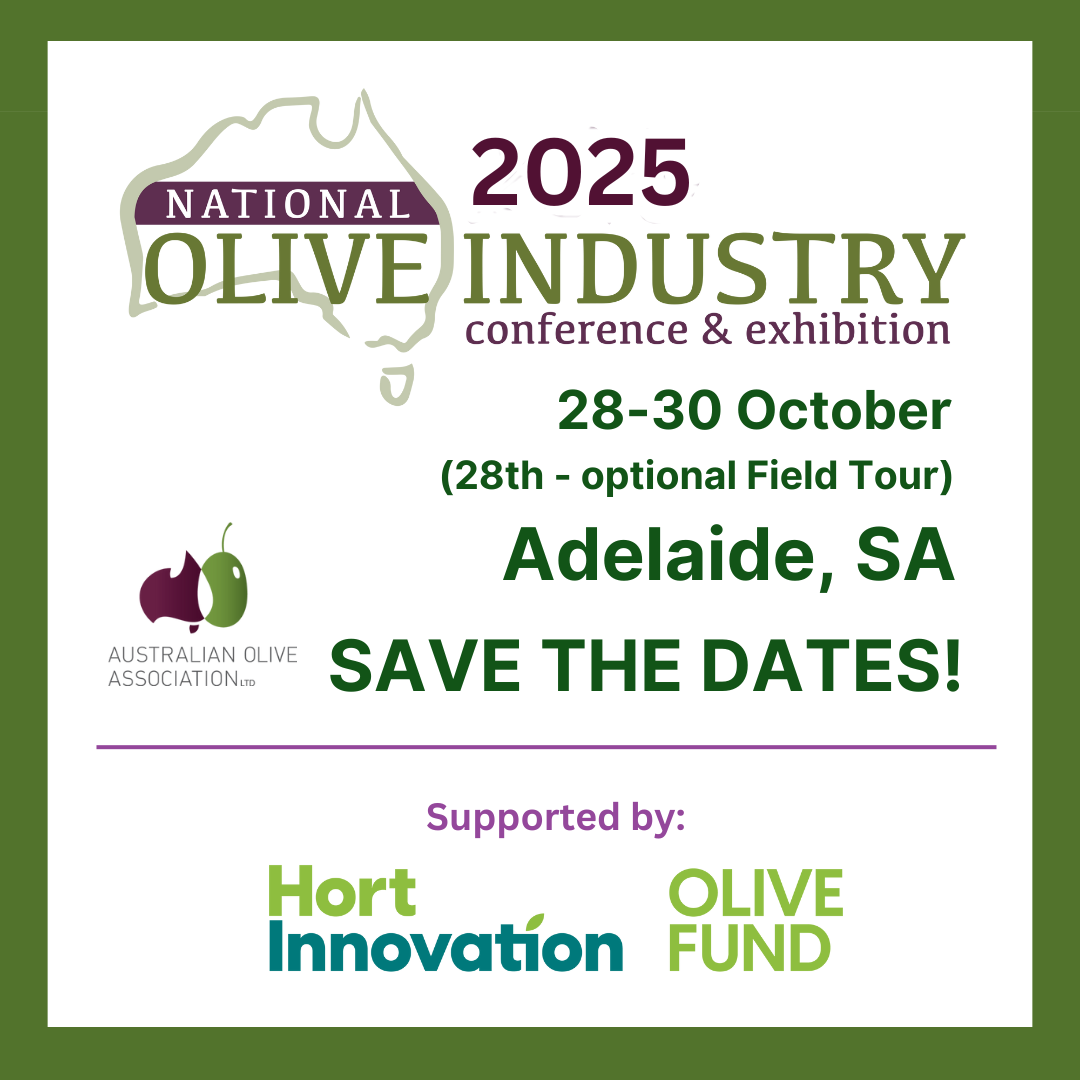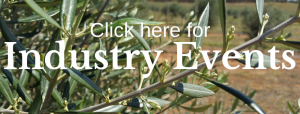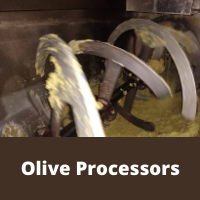
Polyphagous Shot-Hole Borer (PSHB) Euwallacea fornicatus is a new and emerging threat at the urban forest-residential interface. Native to Southeast Asia, the beetle attacks a wide range of plants by tunnelling into trunks, stems and branches.
PSHB has a symbiotic relationship with a Fusarium fungus, cultivating it inside the tree as a food source for the beetle and its larvae. In susceptible trees, the fungus kills vascular tissue causing Fusarium dieback and tree death.
PSHB has been detected in the Perth metropolitan area: establishment of this pest would have significant impact on amenity trees, native vegetation, and the fruit and nut tree industries.
This presentation will summarise response activities, explore some of the challenges and opportunities present at the urban forest-residential interface, how these are being navigated and how stakeholders can help in the fight to detect and manage PSHB.
While no specific risk has yet been recognised for olives, the information and learnings presented are particularly relevant to our industry given the very real risk of a Xylella fastidiosa incursion in Australia.
Presenter: Dr Kylie Ireland, Plant Pathologist, DPIRD Plant Biosecurity Pest Risk & Analytics Team
Dr Kylie Ireland is plant pathologist in the DPIRD Plant Biosecurity Pest Risk and Analytics Team, subject matter expert on the PSHB response, and an adjunct research fellow at Curtin University.
She loves plant biosecurity, the science-management/policy nexus and agricultural extension. With a PhD in plant biosecurity from Murdoch University, Kylie has worked on a diverse range of projects, including pest risk modelling, Myrtle rust ecology, plant pathology capacity building in Laos, plant pest impacts, weed biocontrol and fungicide resistance extension.
Kylie is a director of the Australian Plant Biosecurity Science Foundation and leads the editorial team of the APPS Newsletter.
Event details
Webinar: 16 August, 11am AEST
Cost: free
Register here.
This webinar series is part of the Olive levy project Australian olive industry communications and extension program (OL18000), funded by Hort Innovation, using the Hort Innovation olive research and development levy, co-investment from the Australian Olive Association and contributions from the Australian Government.




